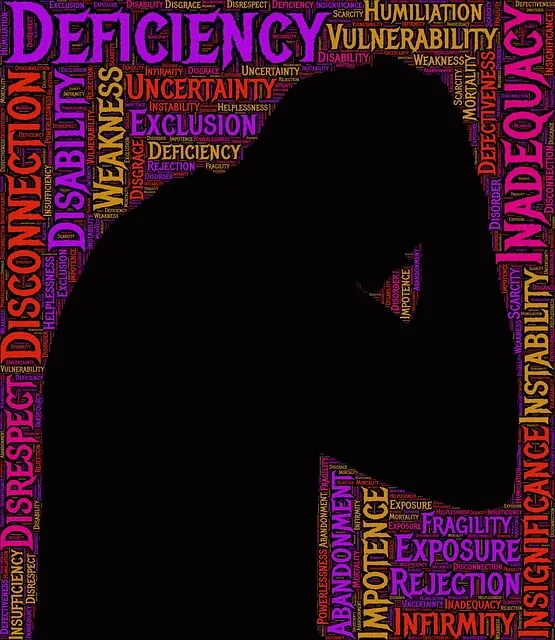The Lakewood Kaiser mental health classes emphasize risk assessment as a cornerstone of effective practice, equipping professionals with skills to identify hazards like emotional exhaustion and boundary crossings. By integrating risk management strategies and self-awareness exercises, practitioners enhance resilience and mitigate challenges. A robust risk management plan, updated with best practices from training programs, ensures patient safety and guides delivery of effective care. The classes foster a supportive environment, providing tools for social skills training, stress management, and self-care to promote emotional well-being and high-quality care.
In the dynamic field of mental health care, effective risk management is paramount. This article guides mental health professionals through a strategic approach to mitigate risks, ensuring safe and compassionate practices. We explore key aspects such as understanding nuanced risk factors within mental health practice, identifying potential hazards, and crafting robust risk management plans. By examining best practices at Lakewood Kaiser Mental Health Classes, we offer valuable insights for professionals seeking to enhance patient safety and foster resilient clinical environments.
- Understanding Risk in Mental Health Practice
- Identifying Potential Hazards and Vulnerabilities
- Developing a Comprehensive Risk Management Plan
- Implementing Strategies for Safe and Effective Care at Lakewood Kaiser Mental Health Classes
Understanding Risk in Mental Health Practice

In the realm of mental health practice, understanding risk is paramount for professionals aiming to deliver safe and effective care. Risk, in this context, encompasses various factors that could potentially harm clients or compromise the integrity of therapeutic relationships. At Lakewood Kaiser mental health classes, professionals are trained to recognize these risks early on, ensuring proactive measures to mitigate their impact. This involves not only identifying vulnerabilities but also fostering an environment that promotes resilience and inner strength development.
Mental health education programs design should incorporate strategies for risk assessment and management as core components. Through comprehensive social skills training, professionals learn to navigate complex situations with empathy and skill, thereby minimizing risks associated with miscommunication or misinterpretation. By prioritizing these aspects, mental health practitioners can better equip themselves and their clients to face challenges head-on, fostering positive outcomes in a supportive setting.
Identifying Potential Hazards and Vulnerabilities

Identifying potential hazards and vulnerabilities is a critical step in risk management planning for mental health professionals. At Lakewood Kaiser mental health classes, practitioners are trained to recognize various risks that can arise within their practice settings. These include emotional exhaustion from high caseloads, exposure to traumatic narratives shared by clients, and the potential for boundary crossings. By acknowledging these challenges, professionals can begin to implement strategies to mitigate them.
Self-Awareness Exercises play a pivotal role in this process. Regular reflection and introspection help mental health professionals understand their own vulnerabilities and emotional triggers. This heightened self-awareness fosters resilience, enabling practitioners to navigate complex situations with greater ease. Incorporating positive thinking techniques into daily routines can also buffer against stress and burnout, thereby enhancing overall risk management within the profession.
Developing a Comprehensive Risk Management Plan

Developing a comprehensive risk management plan is an essential step for mental health professionals to ensure effective patient care and mitigate potential risks. This process involves identifying, assessing, and prioritizing various hazards that may arise in clinical settings, such as those offered by Lakewood Kaiser mental health classes. By creating a structured plan, practitioners can proactively address challenges related to mood management, crisis intervention, and cultural competency, which are critical aspects of healthcare provider training.
A well-crafted risk management strategy should encompass policies and procedures tailored to the unique needs of each practice or organization. It includes guidelines for handling sensitive cases, managing client expectations, and ensuring the safety and security of both patients and professionals. Regular reviews and updates are vital to accommodate evolving best practices in mental health care, especially when incorporating guidance from specialized training programs like those offered at Lakewood Kaiser.
Implementing Strategies for Safe and Effective Care at Lakewood Kaiser Mental Health Classes

At Lakewood Kaiser mental health classes, implementing strategies for safe and effective care is paramount. These strategies encompass a multi-faceted approach designed to enhance both the emotional well-being promotion techniques and self-care routine development for better mental health among professionals. By fostering a supportive environment, healthcare workers are equipped with robust tools to manage risks effectively.
The classes emphasize the importance of social skills training, enabling professionals to interact sensitively with patients while maintaining appropriate boundaries. This holistic approach ensures that mental health practitioners not only deliver high-quality care but also prioritize their own emotional resilience and overall mental health. Through regular sessions, professionals learn adaptive coping mechanisms, stress management techniques, and self-reflection practices tailored to their unique needs.
Risk management planning is an indispensable practice for mental health professionals, especially within institutions like Lakewood Kaiser Mental Health Classes. By understanding risk in their practice and identifying potential hazards, professionals can develop robust plans that safeguard both patients and practitioners. A comprehensive risk management strategy involves implementing effective strategies for safe and effective care, ensuring a supportive environment at Lakewood Kaiser Mental Health Classes and beyond. This proactive approach fosters quality mental health services while mitigating risks, ultimately enhancing patient outcomes and professional well-being.






